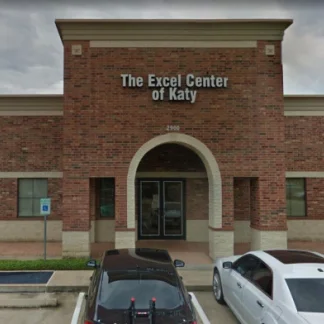Positive Recovery Center - Cinco Ranch
Positive Recovery Center – Cinco Ranch is a private rehab located in Katy, Texas...
West Oaks Hospital in Texas, provides a full continuum of integrated services to meet the needs of patients suffering from mental illness and/or chemical dependency problems. West Oaks Hospital - The Excel Center focus on providing services for adolescents and adults who need continuing mental health assistance from licensed counselors.
Contact us for more information: (281) 647-0020

Connect with West Oaks Hospital - The Excel Center by calling their admissions team directly.
(281) 647-0020 Website Get DirectionsThe Joint Commission, formerly known as JCAHO, is a nonprofit organization that accredits rehab organizations and programs. Founded in 1951, the Joint Commision's mission is to improve the quality of patient care and demonstrating the quality of patient care.
Joint Commission Accreditation: Yes
Research clearly demonstrates that recovery is far more successful and sustainable when loved ones like family members participate in rehab and substance abuse treatment. Genetic factors may be at play when it comes to drug and alcohol addiction, as well as mental health issues. Family dynamics often play a critical role in addiction triggers, and if properly educated, family members can be a strong source of support when it comes to rehabilitation.
Group therapy is any therapeutic work that happens in a group (not one-on-one). There are a number of different group therapy modalities, including support groups, experiential therapy, psycho-education, and more. Group therapy involves treatment as well as processing interaction between group members.
In individual therapy, a patient meets one-on-one with a trained psychologist or counselor. Therapy is a pivotal part of effective substance abuse treatment, as it often covers root causes of addiction, including challenges faced by the patient in their social, family, and work/school life.
Group therapy is any therapeutic work that happens in a group (not one-on-one). There are a number of different group therapy modalities, including support groups, experiential therapy, psycho-education, and more. Group therapy involves treatment as well as processing interaction between group members.
In individual therapy, a patient meets one-on-one with a trained psychologist or counselor. Therapy is a pivotal part of effective substance abuse treatment, as it often covers root causes of addiction, including challenges faced by the patient in their social, family, and work/school life.
In individual therapy, a patient meets one-on-one with a trained psychologist or counselor. Therapy is a pivotal part of effective substance abuse treatment, as it often covers root causes of addiction, including challenges faced by the patient in their social, family, and work/school life.
Positive Recovery Center – Cinco Ranch is a private rehab located in Katy, Texas...
PaRC – Katy Intensive Outpatient Program is a non-profit rehab located in Katy, ...
Michael E. DeBakey VA Medical Center is a public clinic located in Katy, Texas. ...
Recovering Ways is a private rehab located in Katy, Texas. Recovering Ways speci...